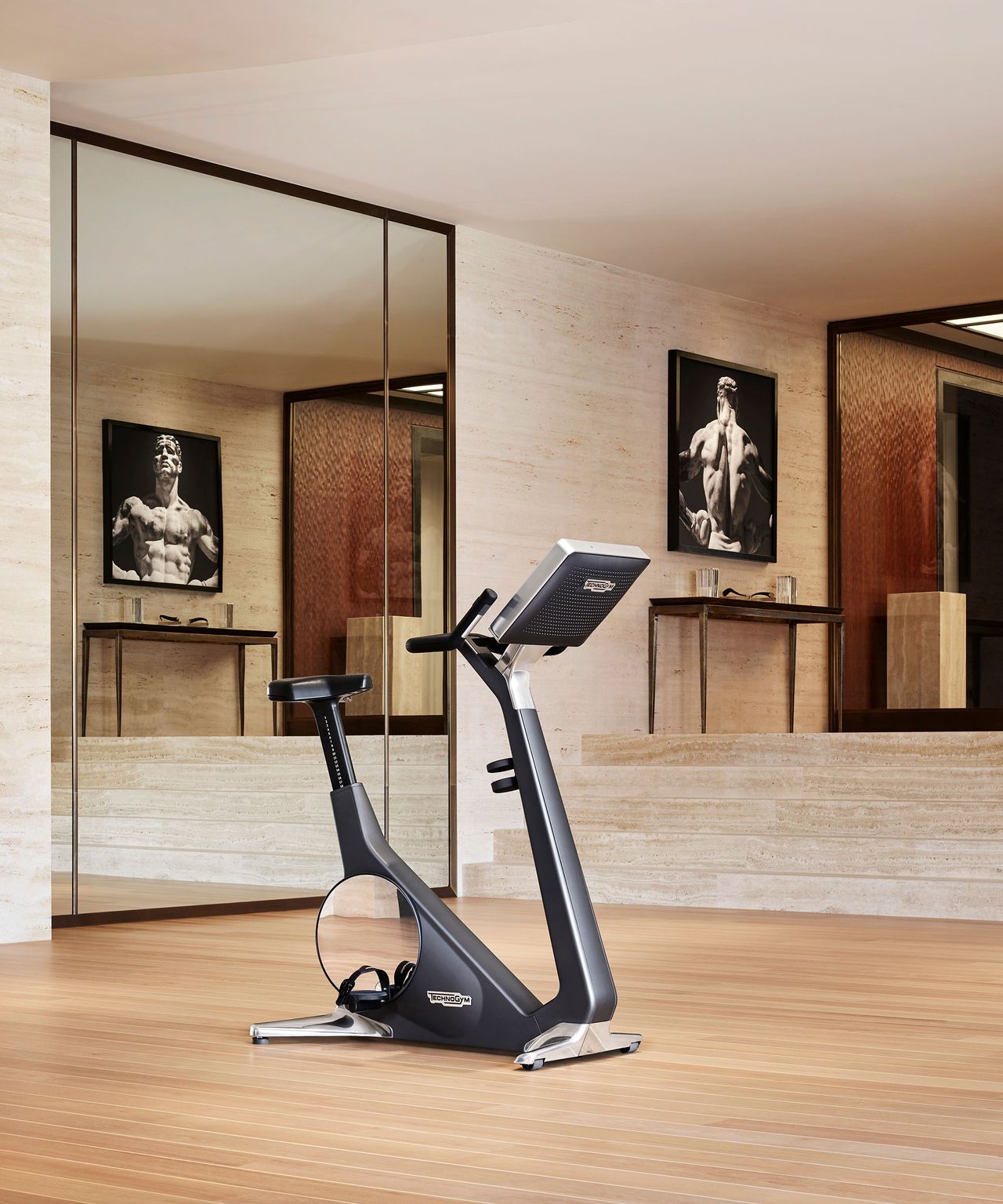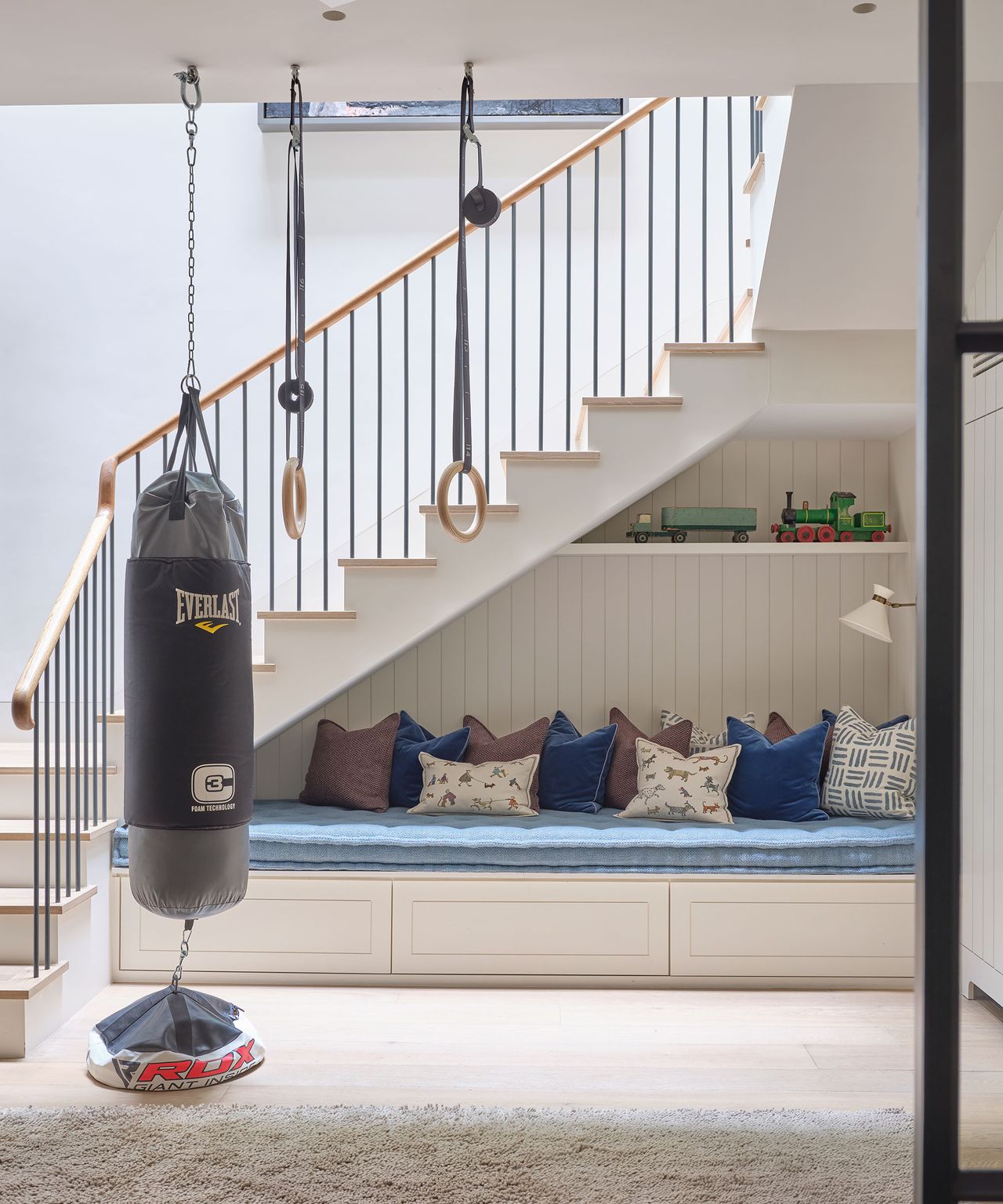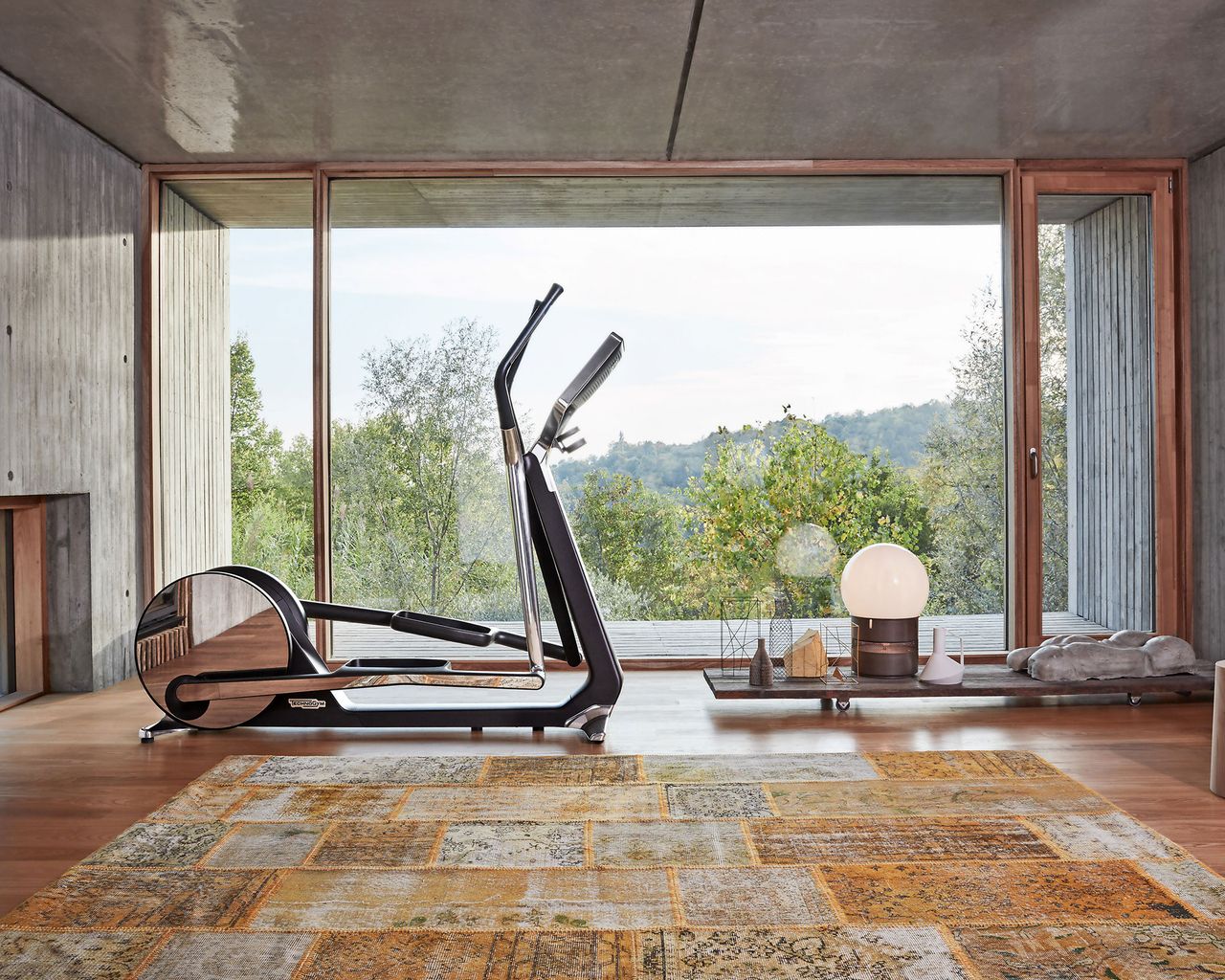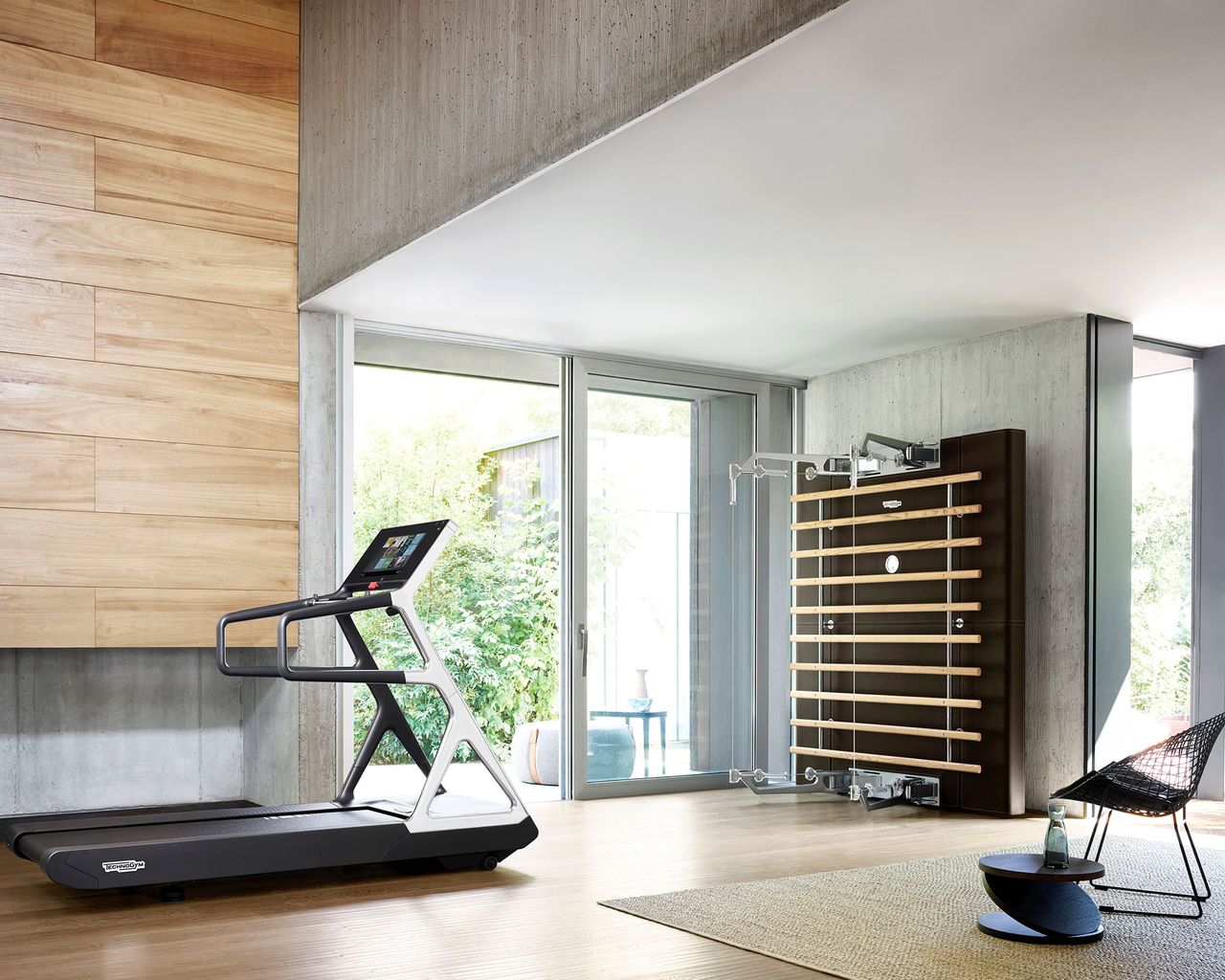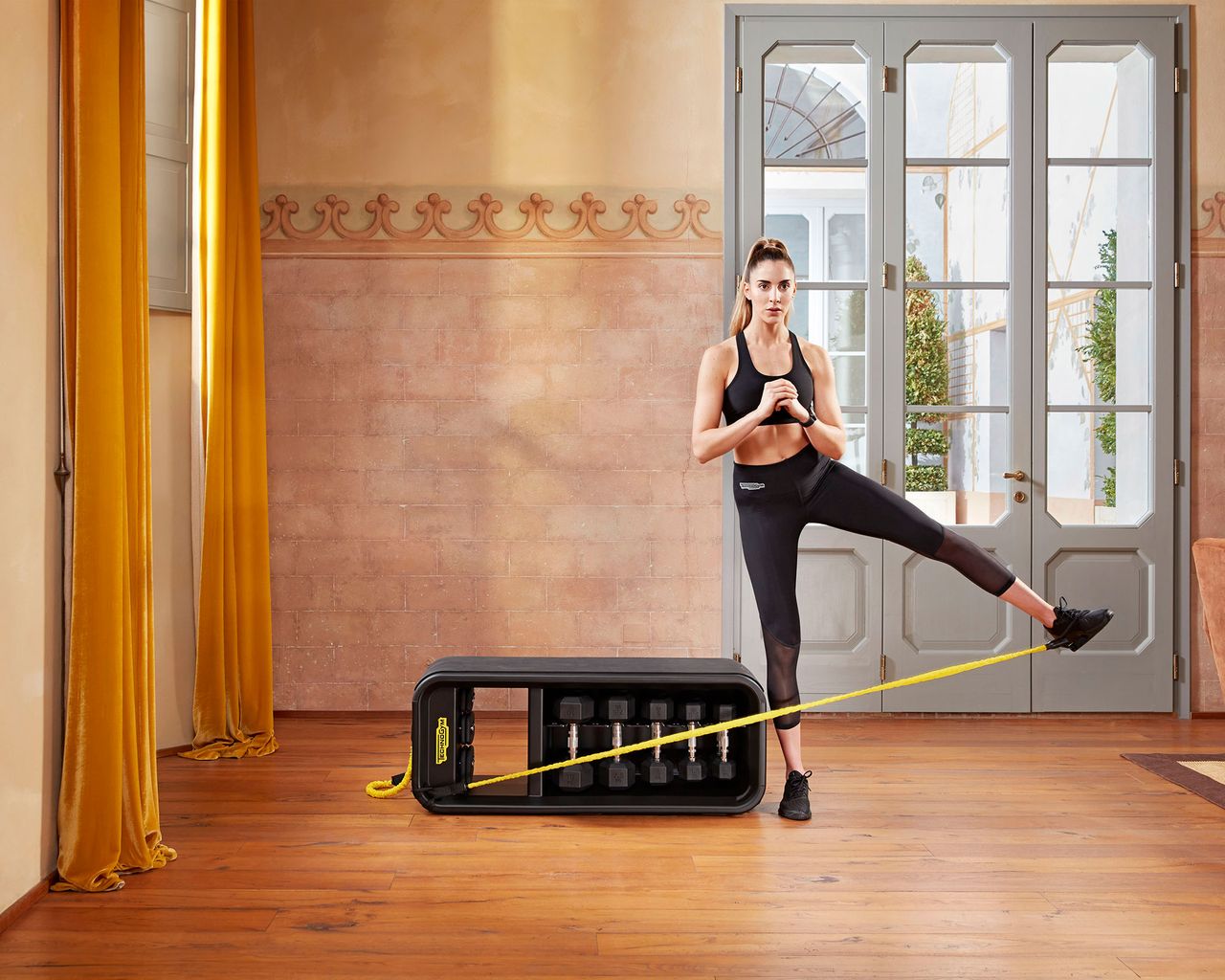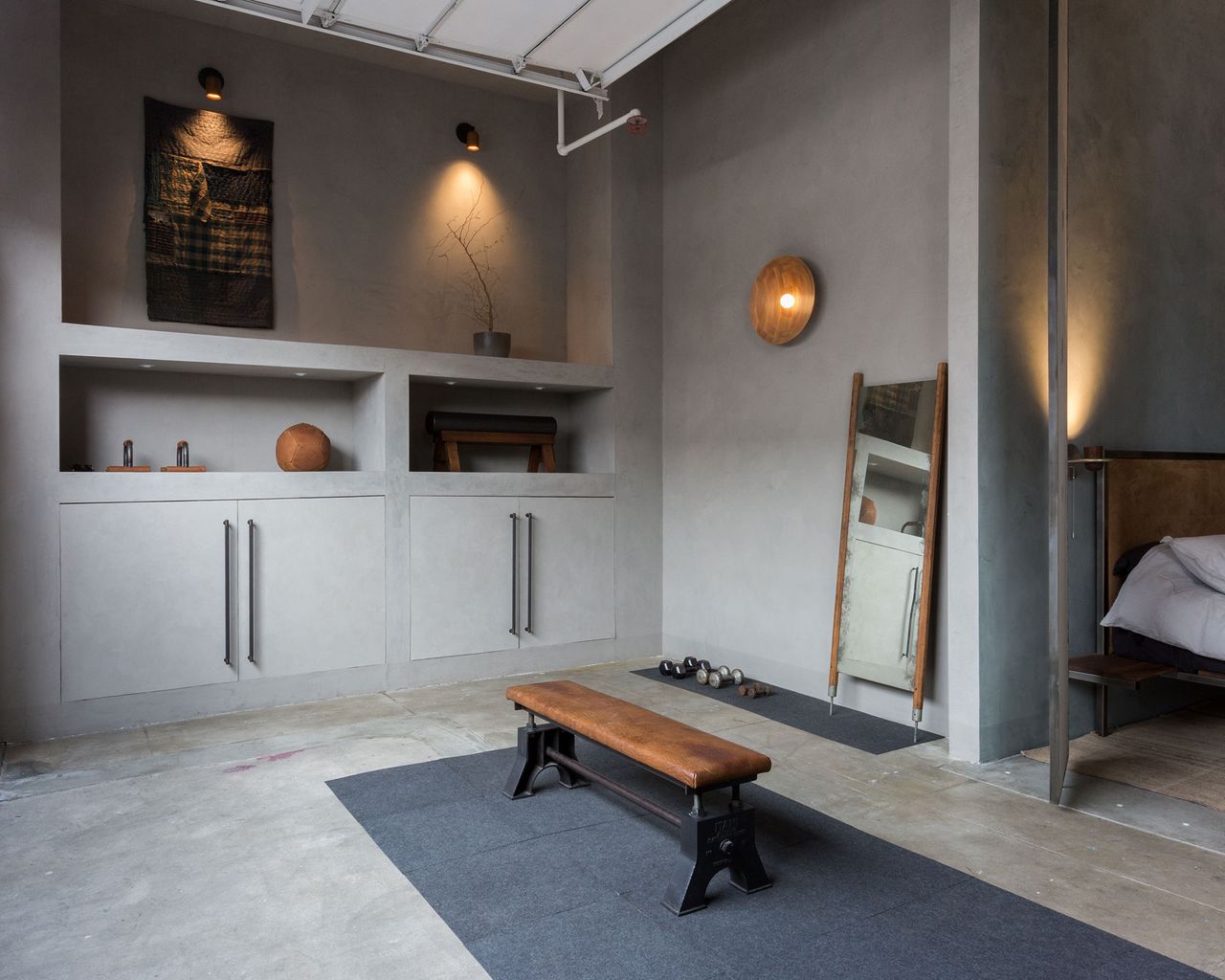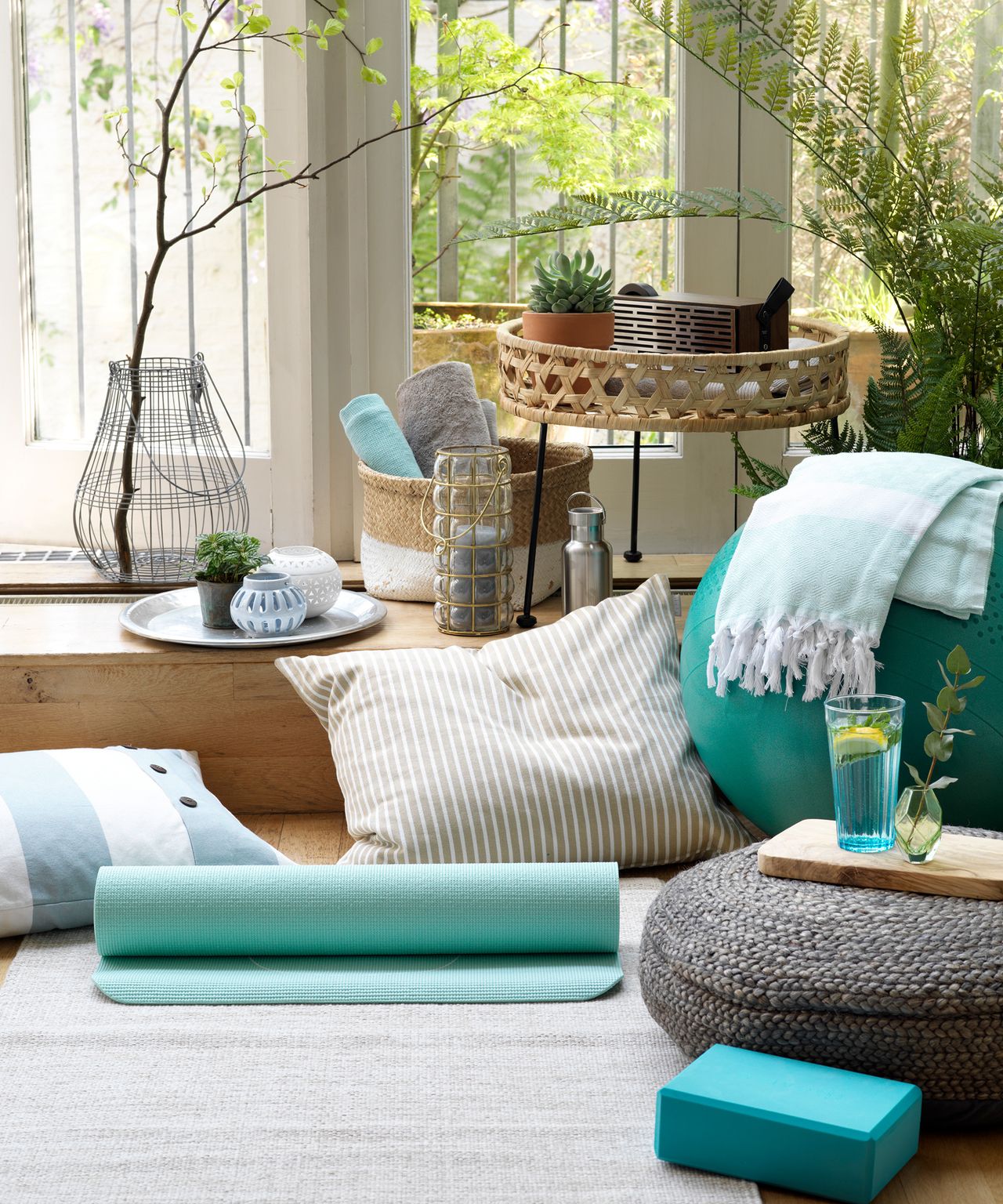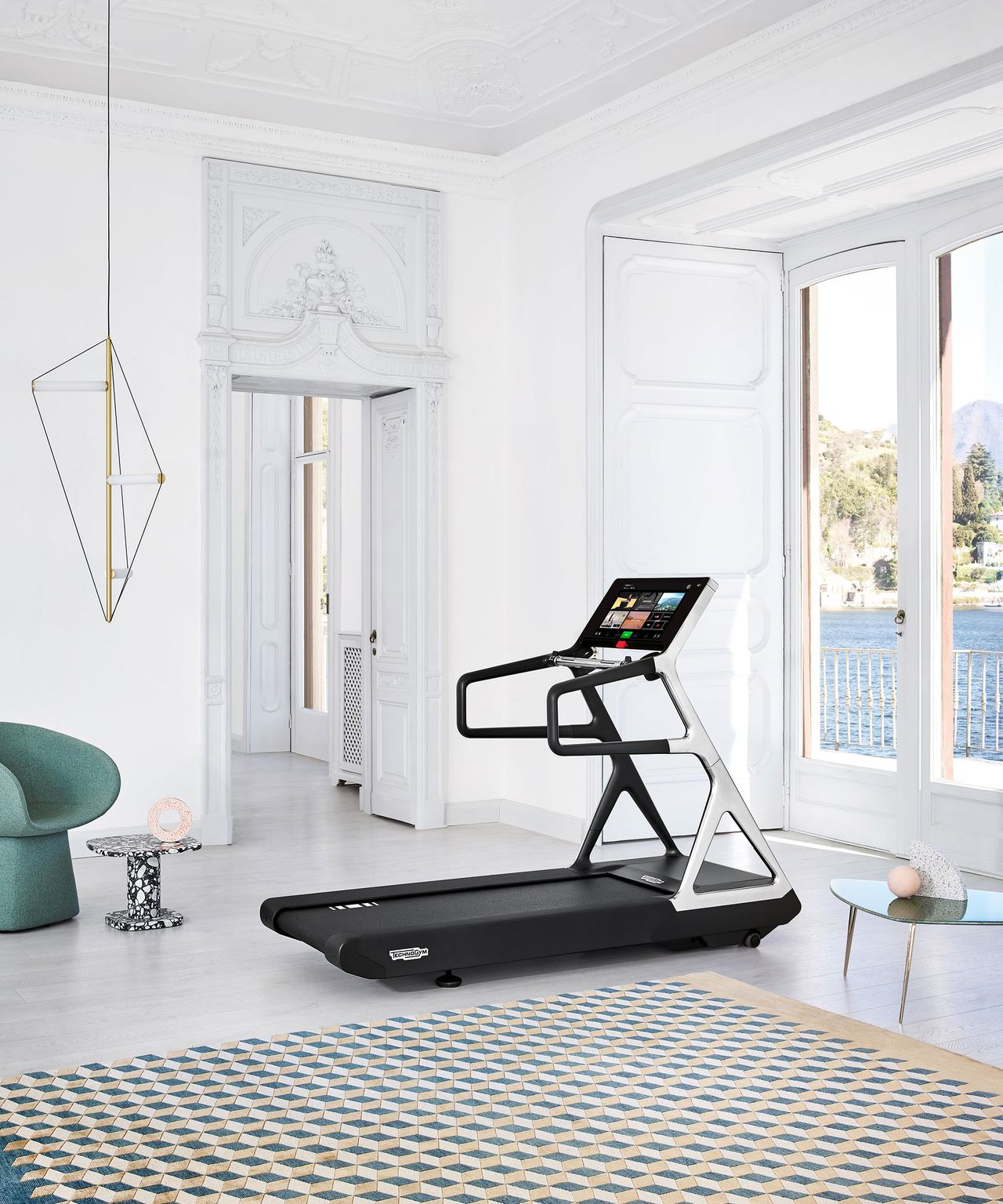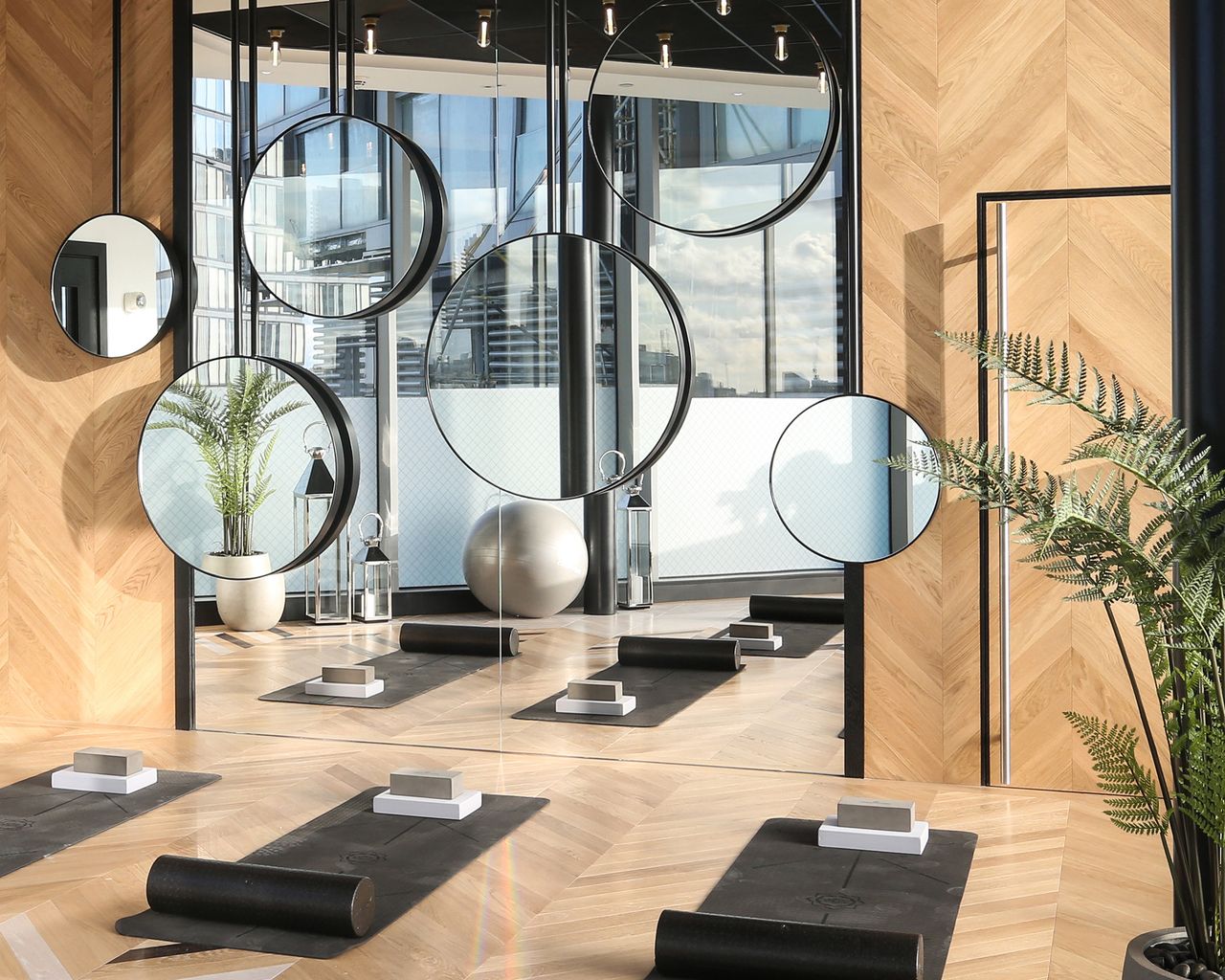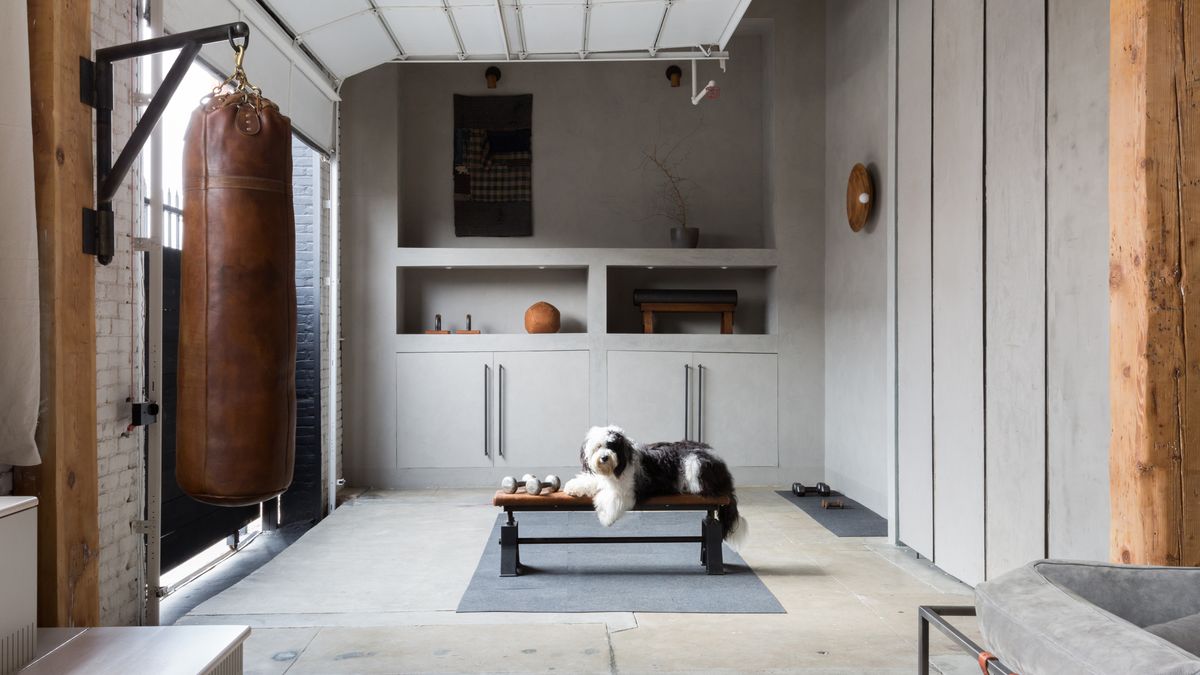
Designing and decorating a home gym: how to build a home gym
Want to build a home gym that’s you’re going to really want to use long-term? Designing and decorating a home gym so that it’s an inviting place to be is one of the best ways to ensure you want to work out regularly.
A beautifully-designed home gym, which is both visually appealing and fully-functional, makes the prospect of a workout far more enticing, but incorporating elements of wellness into your home gym ideas is vital, too.
Use our guide to design and decorate a home gym that’s stylish – and most importantly, is a space that you want to work out in.
Designing a home gym
Before we get to the aesthetics, let’s look at the basics elements – this includes space, equipment – of course – light, ventilation and perhaps even a sound system.
(Image credit: Technogym)
Where to put your home gym?
The space you have available at home will really affect where you put your home gym – but have a think, too about your attitude to exercise.
‘We built a home gym at the end of our yard, which seemed like the most sensible choice,’ says Homes & Gardens‘ Editor in Chief Lucy Searle. ‘However, we learnt an important lesson in doing so – and that’s that none of us like trekking through the rain, cold and snow to reach it in winter, which means we really only used it in late spring through to early fall. So, we’ve moved the gym equipment to a spare bedroom and find that we are far more likely to workout at home. The home gym is now a teenage hangout, which works perfectly for our family.’
That said, if you are an exercise devotee, you enjoy the escape and peace, or you simply don’t have the spare space in the house, a separate garden building will be the perfect spot for you. And if you have a pool, it makes sense to combine a home gym with a pool house.
(Image credit: James Merrell)
What is a good size for a home gym?
The size of your home gym really depends on what you want to include.
‘This completely depends on your needs; if you want your own personal yoga studio, you only need a small room, the size of a small bedroom – and mirror panelling can be added to give a feeling of spaciousness,’ says designer Katharine Pooley.
‘However, if you’re planning a fully equipped gym and you have a treadmill, weights etc, you will definitely need more space. Consider height too – if you have low ceilings, high intensity exercise with jumping will prove more challenging.’
As a rough guide, the American Council on Exercise advises that you will need from 20 to 50 sq ft of space for exercising with free weights; add a treadmill, and you will need an extra 30 sq ft; a multi-gym will require between 50 to 200 sq ft.
(Image credit: Technogym)
How to lay out a home gym
‘Functionality is key, spaces should be zoned to ensure all exercises can be undertaken with adequate space,’ advises designer Katharine Pooley.
‘Size is very important – you need to have enough space to achieve your goals for the space. If you’re a regular gym goer, you’ll be in there a lot so it needs to be space you enjoy spending time in, and have enough space to feel relaxed and not cramped. I find, especially in the current climate, that the equipment itself isn’t what’s vital; it’s having a space you like being in, and that works for your needs.
‘It’s a good idea to clearly define the different spaces within your home gym; for example a yoga area, a weights’ section, a cardio corner. Each exercise comes with a different mentality, and that should be reflected in the space itself.’
In order to design a gym that is perfect for you, first be honest about what you will actually do there and the equipment you need to reach your fitness goals.
‘When drawing up the floor plan, be practical about the size of the room you have and what will fit in comfortably,’ says interior designer Kelly Hoppen. ‘You won’t enjoy exercising if everything is too close together and you are left with very little space for stretching.’
If your home gym is in the garden, ensure the basics, such as power and Wi-Fi are included in your design. If you have lots of space, you may want to include shower room ideas and a WC to your wish list. If you are combining a home gym with pool house ideas, these, alongside towel and clothes storage will be a must.
(Image credit: Technogym)
What equipment do you need for a home gym?
If you have the space, you might want to consider a multi-gym, perhaps one of the best treadmills – a must if walking for fitness is your thing – rowing machines, exercise bikes or elliptical trainers will need to be factored in. If you need the encouragement of a gym instructor, ensure the Wi-Fi is good so that you can video call with ease – or invest in a system such as the Vaha, a high definition training portal in a mirror.
If you are more into HIIT workouts – some of the best exercises to do at home for strength and fitness – or yoga or Pilates, a simple yoga mat and a set of dumbbells may be enough.
‘Every client is unique, so the most important thing to take into consideration is what they will use their home gym for,’ advises Kelly Hoppen. ‘Most people like to have a cross trainer, a running machine, and a floor mat, but they may also want space for a Swiss-ball work, a barre for ballet, a set of weights, a rowing machine and so on.’
(Image credit: Technogym)
Factor home gym lighting into your design
‘Exercises like yoga or Pilates fit better with soft, low lighting, whereas with high intensity cardio safety comes first, so proper lighting is a must,’ advises designer Katharine Pooley.
‘The best idea would be to plan a combination of lighting. Diffused LED strip lighting hidden in ceiling coffers and joinery will give a soft uplifting wash of light. Overhead down lights will allow for bright task lighting.
‘I also like to add some aesthetic accent lighting like sculptural contemporary crystal and bronze wall lights – a gym can still be an elegant and considered space – function and beauty is my mantra.’
Natural daylight is important too, so if yours is sited in the backyard, use this as an opportunity to design a home gym with plenty of glazing – folding/sliding glazed doors that can open right out to the garden will be wonderful in summer – and great for ventilation, too.
(Image credit: Amy Bartlam / Stephen Kenn Loft Gym)
Ensure ventilation and heating are practical
Ventilation is a must. If your home gym is in the house, simply opening a window should do the trick, though an extractor fan or dehumidifier might stop the room becoming steamy more efficiently, especially when weather is cold.
If your home gym is in the backyard, doors that can be opened will be great in summer, but ensure there is a window that can be cracked open for winter workouts. Proper ventilation, such as an extractor fan or even a dehumidifier will help get rid of condensation, too.
Bear in mind that ventilation is not just for the room – you might like to invest in one of the best fans to stay cool when working out, whatever the time of year.
Similarly, consider others in the family using your home gym – investing in your favorite home fragrance can make the space more bearable.
Heating: in winter you will want the room to feel at least just about bearable so that you can work out in comfort. And if you are a fan of hot yoga, heating may need to be boosted considerably, in which case insulation will have to be really efficient, too. Have the heating system installed with a timer, ideally on a smart system, so that you can set the heating to come on half an hour before your workout. The rest of the time the space can be left unheated.
Think: audio/visual to inspire your workout
In a professional gym, it’s likely that there is music and a TV or two to distract or entertain you as you hit the treadmill or exercise bike – and there’s no reason not to include on when designing a home gym.
At the very least, a smart speaker that you can voice-control to conjure up music of exactly right mood is a must-have. Better still, a wall-hung smart TV will help pass the time – or you can use it to tune into online exercise classes.
(Image credit: Future / Dan Duchars)
Decorating a home gym
Decorating a home gym with the same devotion as you would indoors is vital to its success. This doesn’t just come down to lighting, but colors, décor and acoustics, too – all are as fundamental as the equipment you choose.
‘People often assume an at home gym is all about the equipment; it’s not, just as an actual gym isn’t just about the equipment,’ says interior designer Katharine Pooley.
‘It’s about the music, the lighting, the atmosphere; the same is said for your at-home workout space. Make sure you’re creating an experience for when you exercise; much like they do in boutique gyms.’
These elements help you create a space that matches your specific needs: just as you would design a tranquil bedroom, or a functional kitchen, you should also take care when planning a home gym that is energizing, calming and motivating in equal measures.
Mirrors are useful when practising precision exercises such as yoga – and they also help to enhance smaller spaces and reflect light.
It is also worth adding a few individual touches, something to make the space personal to you, such as beautiful artwork, motivational messages or captivating photography.
And air-purifying house plants… they will freshen the air and look wonderful.
What is the best color to paint a home gym
The best color for a home gym should really be one that you love, that will inspire you to be in the room, and that you will feel motivated by. If you’re looking to color psychology for the best color for a home gym, think pale blues and greens – choosing zesty, fresh shades that are known to increase focus and productivity.
(Image credit: Technogym)
Are home gyms worth it?
If you can create the space for it you really should consider it – a home gym is such an asset, it actively encourages fitness and positivity in your life. There are so many areas in our homes that are underused; spare bedrooms, basements and attics full of clutter, out buildings and garages sitting empty.
How much does a home gym cost?
The cost of building and setting up a home gym greatly varies in price depending on the amount of equipment, quality of finishes and level of acoustics you go for. If you’re after a professional-looking set-up, then we recommend calling in the experts.
Motive8’s home gym solutions start from around $13,500 (£10,000). They also charge just $225 (£300) for an onsite home consultation (100{6b977529af4b490fe19a3f85472c6203ccfa467a56646e317a890c6580e8b827} fully refundable if order is placed). For that money, they will produce 2D/3D/CAD drawings, provide you with equipment recommendations and a full design proposal.
(Image credit: motive8)
What are the benefits of a home gym?
If you’re body conscious and don’t have the confidence to step into the gym, then a home gym is the answer. You can get the results you are after without leaving the house.
‘Many people get much better results training at home, says Julia Buckley, fitness trainer and author of The Fat Burn Revolution and Heal Me. ‘In the time it would take to pack your bag, travel to the gym, get past the turnstiles, find a locker and get to the equipment you want, you could do an entire workout at home.’
You don’t need any equipment to get started, but as you get into it you could invest in dumbbells, and a gym ball. The key is to get moving.
‘It’s all about variety,’ says Julia. ‘Variations on exercises such as squats, lunges, deadlifts, burpees, press-ups, pull-ups and jumping moves are great ways to burn fat.’
Work at your own fitness level and always check with your doctor before you start.

